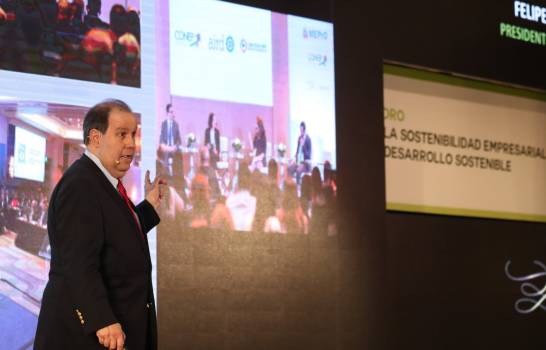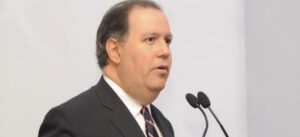SOURCE: https://www.diariolibre.com
This Wednesday, the 2nd edition of the Business Sustainability Forum for Sustainable Development took effect. The event, jointly hosted by INICIA and Cisneros, was organized as a follow-up session to comply with the 2030 Agenda and the Sustainable Development Goals (SDGs) embraced by the business sector.
Felipe Vicini, Managing Partner at INICIA, headed the event and stated that “in order to integrate these initiatives as part of each company’s business strategy, beyond the Social Responsibility and Philanthropy, its financing has an even more important relevance”.
Vicini said that the 2030 Sustainable Development Agenda is one that is both ambitious and challenging, therefore assuring that its proper rollout requires allocating local and international funds, as well as the adequation of financial norms and standards, and the constant search for innovative tools as well as government investment mechanisms.
On his end, Pedro Brache, Chairman of the National Business Council (CONEP), when asked about these topics said “that this forum is very important, because it addresses the Sustainable Development Goals (SDGs). We have supported them since the very beginning, and we will continue to support them together with other organizations, because when the SDGs are met, the conditions of the country and its citizens will improve”. Brache said that the CONEP is working alongside the government authorities, headed by the Minister of Economy, Planning and Development, Mr. Isidoro Santana.
When it comes to equality, Brache said that the CONEP just concluded an assessment study which states that the bigger the companies are, better conditions exist for women and more equality is present. “This stresses that we must try for small companies to aim higher and become greater so that they too can offer the same conditions”. The more formal the working environment, more formality shall be required to improve their conditions, to close the income inequality gap”.
The event was hosted by businesspersons Felipe Vicini, Managing Partner at INICIA; Adriana Cisneros, CEO of Cisneros; Isidoro Santana, Minister of Economy, Planning and Development and Inka Mattila, UNDP Resident Country Head. Adriana Cisneros stated that “to advance in the structuring and funding of more sustainable projects, requires a joint effort on behalf of the private sector and the government, as well as investors and the business community. This translates to a significant chance and a true evolution in the way we conceive financing, especially on behalf of government investors, but also in the way we materialize the most profitable business models, with greater returns, at the same time that they are inclusive and responsible towards civil society”.
Inka Mattila, Resident Country Head of the UNDP in the Dominican Republic, offered a general presentation on the 2030 Sustainable Development Agenda, and the UNDP’s role in driving it forward. When covering the subject, she presented a series of guidelines applicable to measure the contributions and impact of the private sector in meeting all SDGs. During the session on “Impact Investment and the SDGs” headed by George Gray Molina, Financial Advisor to the UNDP, they covered the conceptual framework of all impact-driving investments, their close relationship and relevance to the 2030 Agenda, as well as the metrics of social and environmental impacts in all private sector transactions.
On her end, Sofia Perazzo, Sustainability VP for Cisneros Real Estate, presented the “Tropicalia case”, and commented on it by expressing that “developing a corporate business strategy always starts with convictions, a personal vision, which comprises an entire team, starting with its CEO all the way to all collaborating staff from all company levels. In 2008, Tropicalia was conceived as a luxury tourism development, but still lacked in sustainability. All that followed the next year, in 2009, a year after the creation of Fundación Tropicalia, which is the social partner of the investment. The curious part of this story is, that it was actually the social investment which shaped our business model and viceversa”.



